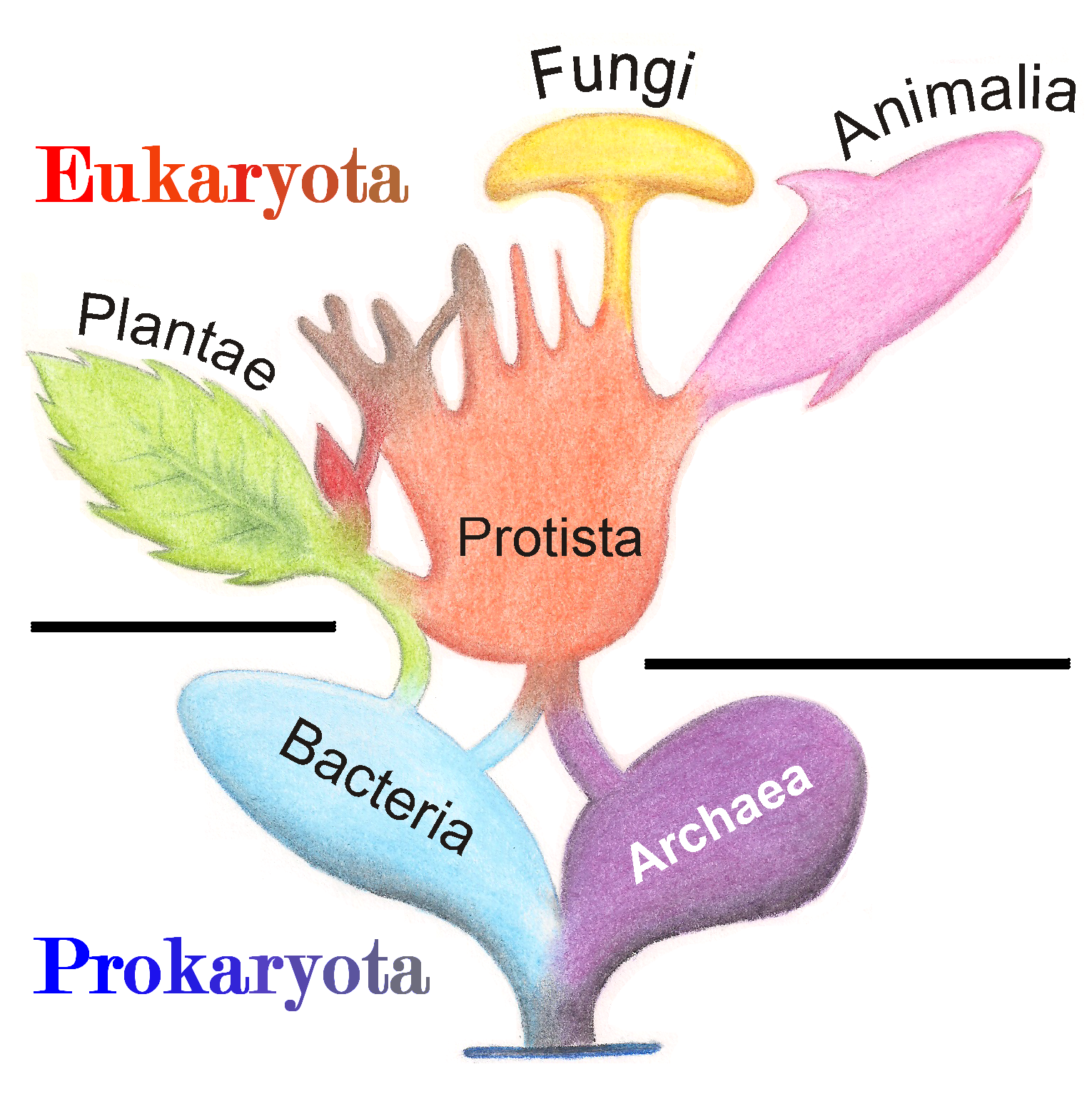two-empire system on:
[Wikipedia]
[Google]
[Amazon]
 The two-empire system (two-superkingdom system) was the top-level biological classification system in general use from the early 20th century until the establishment of the three-domain system (which itself is currently being challenged by the two-domain system). It classified cellular life into Prokaryota and
The two-empire system (two-superkingdom system) was the top-level biological classification system in general use from the early 20th century until the establishment of the three-domain system (which itself is currently being challenged by the two-domain system). It classified cellular life into Prokaryota and
 The two-empire system (two-superkingdom system) was the top-level biological classification system in general use from the early 20th century until the establishment of the three-domain system (which itself is currently being challenged by the two-domain system). It classified cellular life into Prokaryota and
The two-empire system (two-superkingdom system) was the top-level biological classification system in general use from the early 20th century until the establishment of the three-domain system (which itself is currently being challenged by the two-domain system). It classified cellular life into Prokaryota and Eukaryota
The eukaryotes ( ) constitute the Domain (biology), domain of Eukaryota or Eukarya, organisms whose Cell (biology), cells have a membrane-bound cell nucleus, nucleus. All animals, plants, Fungus, fungi, seaweeds, and many unicellular organisms ...
as either "empires" or "superkingdoms". When the three-domain system was introduced, some biologists preferred the two-superkingdom system, claiming that the three-domain system overemphasized the division between Archaea
Archaea ( ) is a Domain (biology), domain of organisms. Traditionally, Archaea only included its Prokaryote, prokaryotic members, but this has since been found to be paraphyletic, as eukaryotes are known to have evolved from archaea. Even thou ...
and Bacteria
Bacteria (; : bacterium) are ubiquitous, mostly free-living organisms often consisting of one Cell (biology), biological cell. They constitute a large domain (biology), domain of Prokaryote, prokaryotic microorganisms. Typically a few micr ...
. However, given the current state of knowledge and the rapid progress in biological scientific advancement, especially due to genetic analyses, that view has all but vanished.
Some prominent scientists, such as the late Thomas Cavalier-Smith, still hold and held to the two-empire system. The late Ernst Mayr, one of the 20th century's leading evolutionary biologists, wrote dismissively of the three-domain system, "I cannot see any merit at all in a three empire cladification." Additionally, the scientist Radhey Gupta argues for a return to the two-empire system, claiming that the primary division within prokaryotes should be among those surrounded by a single membrane (monoderm), including gram-positive bacteria and archaebacteria, and those with an inner and outer cell membrane (diderm), including gram-negative bacteria.
This system was preceded by Haeckel's three-kingdom system: Animalia
Animals are multicellular, eukaryotic organisms in the Biology, biological Kingdom (biology), kingdom Animalia (). With few exceptions, animals heterotroph, consume organic material, Cellular respiration#Aerobic respiration, breathe oxygen, ...
, Plantae and Protista
A protist ( ) or protoctist is any Eukaryote, eukaryotic organism that is not an animal, Embryophyte, land plant, or fungus. Protists do not form a Clade, natural group, or clade, but are a Paraphyly, paraphyletic grouping of all descendants o ...
.
See also
*Domain (biology)
In biological taxonomy, a domain ( or ) (Latin: ''regio''), also dominion, superkingdom, realm, or empire, is the highest taxonomic rank of all organisms taken together. It was introduced in the three-domain system of taxonomy devised by Carl ...
* Kingdom (biology)
In biology, a kingdom is the second highest taxonomic rank, just below domain. Kingdoms are divided into smaller groups called phyla (singular phylum).
Traditionally, textbooks from Canada and the United States have used a system of six kingdo ...
* Three-domain system
References
{{DEFAULTSORT:Two-Empire System High-level systems of taxonomy